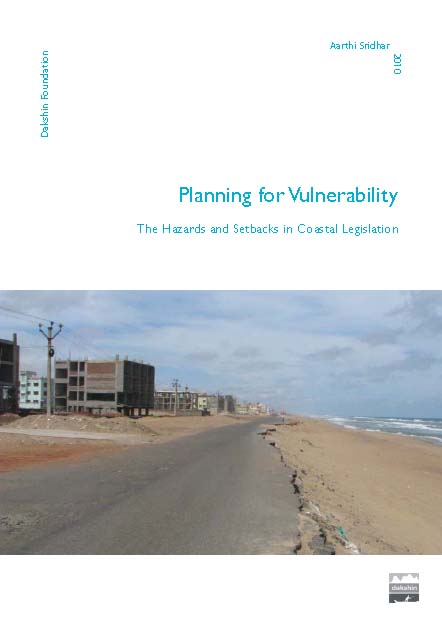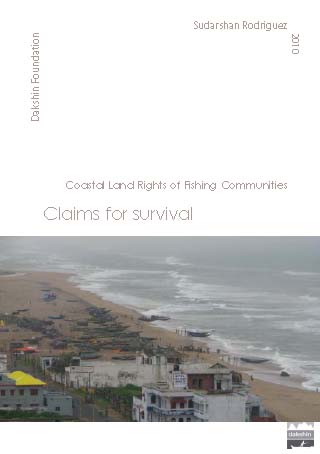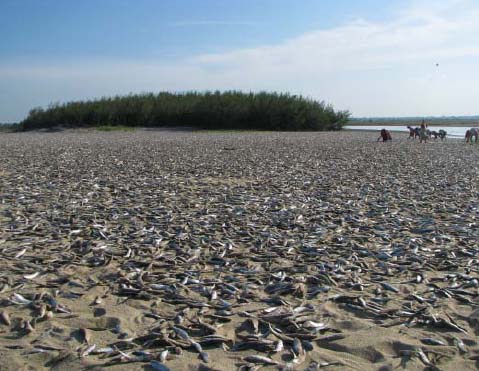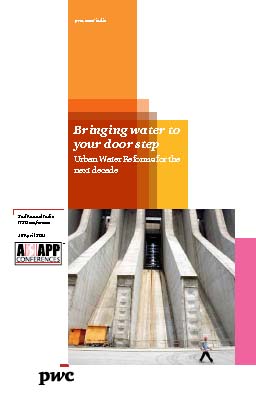/topics/governance
Governance
Training on process documentation of development interventions – Sambodhi Research and Management Institute, at New Delhi
Posted on 24 May, 2011 12:02 PMSambodhi was conceptualized in 2005 to offer Research and Advisory services to different organizations. We are a rapidly growing organization. We have delivered effective results in Development Consulting and Research, Project Management Advisory and Business Analytics. Training is yet another area where we have made our presence felt convincingly.
Swaraj University two year learning program
Posted on 24 May, 2011 11:46 AMSwaraj University is a two-year learning program that creates opportunities for young learners to develop the knowledge, skills and perspectives they need to create viable green-collar enterprises and to support healthy and resilient local communities. This self-directed learning process invites learners to identify their hearts’ visions and engages them in developing the skills, relationships and practices they need to manifest those visions.
Planning for vulnerability - The hazards and setbacks in coastal legislation – A report by Dakshin Foundation
Posted on 22 May, 2011 06:16 PM The law pertaining to coastal spaces – the Coastal Regulation Zone (CRZ) Notification, 1991 specifically decides what people can and cannot do on the coastal stretches of the country.
The law pertaining to coastal spaces – the Coastal Regulation Zone (CRZ) Notification, 1991 specifically decides what people can and cannot do on the coastal stretches of the country.
Inclusion of a component relating to rural drinking water in the special package for drought mitigation strategies in Bundelkhand region of Uttar Pradesh and Madhya Pradesh - PIB release
Posted on 22 May, 2011 05:09 PMThis would be in addition to the other measures approved by the Cabinet on 19th November, 2009 under the special package for implementing drought mitigation strategies in Bundelkhand.
Harbouring trouble - The social and environmental upshot of port growth in India – A report by Dakshin Foundation
Posted on 22 May, 2011 12:04 PMBesides its own impact, port development is often accompanied by other activities such as the location of industries, power plants, railway lines, highways, hotels, SEZs, residential complexes, etc., that have multiple detrimental impacts – environmental, social and erosion related.
Claims for survival - Coastal land rights of fishing communities – A report by Dakshin Foundation
Posted on 22 May, 2011 09:25 AM Marine-coastal ecosystems and coastal communities are poorly represented in the public debates on India’s social and environmental problems. Coastal and marine ecosystems are the backbone of a fisheries economy that supports livelihoods of millions directly and several more indirectly.
Marine-coastal ecosystems and coastal communities are poorly represented in the public debates on India’s social and environmental problems. Coastal and marine ecosystems are the backbone of a fisheries economy that supports livelihoods of millions directly and several more indirectly.
Community groups such as fishers and other coastal populations enjoyed customary or traditional rights to exploit resources and to fish in adjacent coastal areas. The current state of fisheries finds its genesis in the modernization programme introduced by the Government of India to ‘develop’ the sector with the focus for development through the maximisation of production. In the late 1970s, modern fishing methods threatened the livelihoods of these communities and coastal ecosystems. Mechanised craft and gear, principally trawlers with bottom trawling gear, severely impacted fishing stocks.
Fisherfolk in India have struggled for greater control over the seas and resource management, struggles which have been directed both inward as well as against the State. The conflict over the coastal space is mostly between fishing communities and other new users and interest groups. Access to coastal resources is now being thrown open to all, giving a new meaning to the idea of ‘coastal commons’. There are very clear linkages between the rights to the coast and the right to fish as without the former, the latter will be difficult to operationalise and eventually rendered meaningless.
The Coastal Regulation Zone (CRZ) Notification, 1991 has been the only legislation with some mention and reference to customary rights of fishing communities on land in the coastal zone. However, it did not contain provisions and details to ascertain or establish these rights. Despite this, fishing communities have seen the CRZ in its 1991 form as an instrument in their favour as it regulates all activities that can potentially impact the coast and community livelihoods. However, the twenty one odd amendments to the CRZ Notification were mostly in favour of development pressures and special interest lobbies.
some mention and reference to customary rights of fishing communities on land in the coastal zone. However, it did not contain provisions and details to ascertain or establish these rights. Despite this, fishing communities have seen the CRZ in its 1991 form as an instrument in their favour as it regulates all activities that can potentially impact the coast and community livelihoods. However, the twenty one odd amendments to the CRZ Notification were mostly in favour of development pressures and special interest lobbies.
This backdrop forms the driving force behind this report which seeks to argue a case for according coastal land rights to fishing communities.
Bringing water to your door step - Urban water reforms for the next decade – A report by Price Waterhouse Coopers
Posted on 20 May, 2011 09:01 PM This report by Price Waterhouse Coopers India Limited for the Second Annual India Water Conference in April 2011 presents its view on urban water reforms for the next decade. India is still at an early stage of the urbanisation process and will witness exponential growth in many of its cities over the next few decades. By 2030 the urban population is expected to reach more than 590 million. This will put enormous pressure on all existing resources, especially water. Despite sufficient availability of raw water, many of its cities struggle to provide more than a few hours of water supply.
This report by Price Waterhouse Coopers India Limited for the Second Annual India Water Conference in April 2011 presents its view on urban water reforms for the next decade. India is still at an early stage of the urbanisation process and will witness exponential growth in many of its cities over the next few decades. By 2030 the urban population is expected to reach more than 590 million. This will put enormous pressure on all existing resources, especially water. Despite sufficient availability of raw water, many of its cities struggle to provide more than a few hours of water supply.
Improving water availability in the cities requires addressing complex policy, institutional and funding challenges. The core of the new approach will include instituting a new era of greater accountability and a performance-driven approach. Service delivery to urban poor has to be an integral part of this approach to bring about greater inclusiveness.
Recent experience with Public-Private-Partnerships (PPP) in urban water supply shows that with a customer focused approach and demonstration of clear benefits, there will be greater political and public acceptability of private participation. At the same time, fiscal framework at the local level has to be considerably strengthened before attempting wide scale replication of PPP.
The Goa sewerage system and sanitation services management act - Government of Goa
Posted on 20 May, 2011 04:26 PMThis document describes the Goa Sewerage System and Sanitation Services Management Act and includes:
Kelo dam, Raipur, Chattisgarh oustees agitation - Hunger strike called off after meeting with Chief Minister - Audio updates from CGNet Swara
Posted on 19 May, 2011 11:03 AMArticle courtesy: CGNet Swara
Kelo dam hunger strike: 7 more farmers shifted to hospital
Rajesh Tripathi is reporting from continuing hunger strike of farmers from Kelo dam site in Raigarh district of Chhattisgarh. He says 7 more farmers have now been shifted to hospital. 4 were shifted before in last 2 days.
The rape of Goa - A photo documentary by Rajan Parrikar (2008)
Posted on 17 May, 2011 05:41 PMGoa, the last remaining redoubt of the pleasant, civilized life in India, now faces environmental ruin from indiscriminate construction and exploitation of its natural resources. Concomitant with this ruin is the imminent erasure of its sui generis identity and culture wrought by the uncontrolled influx of migrants from all over India. First released in May 2008, this documentary was screened in towns and cities all across Goa.





